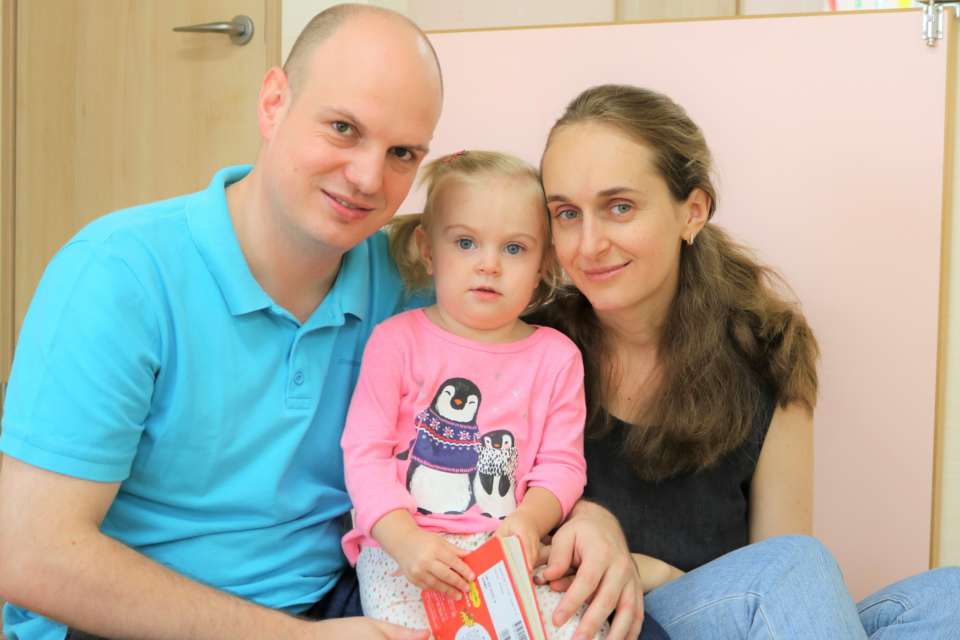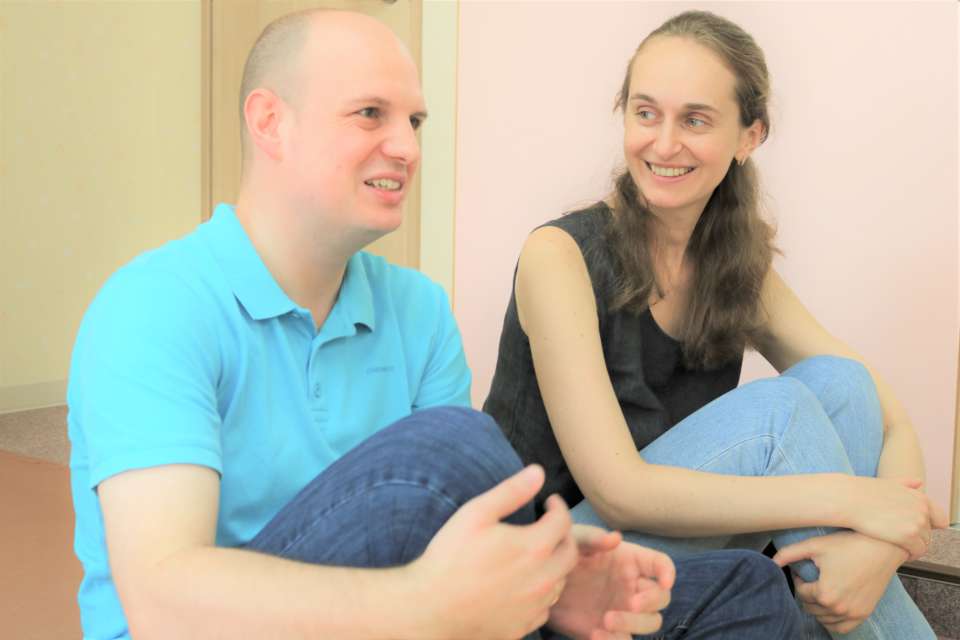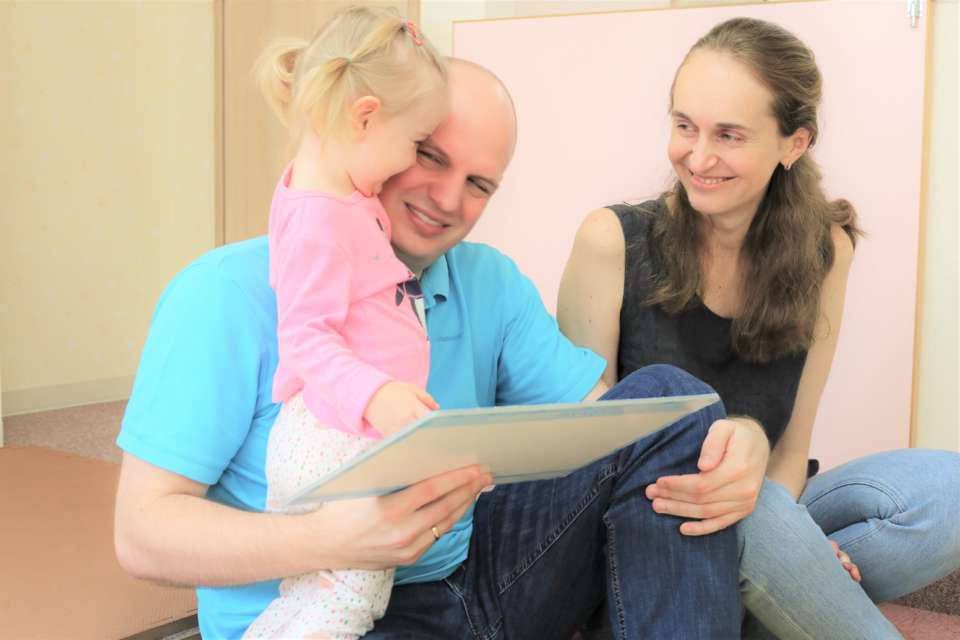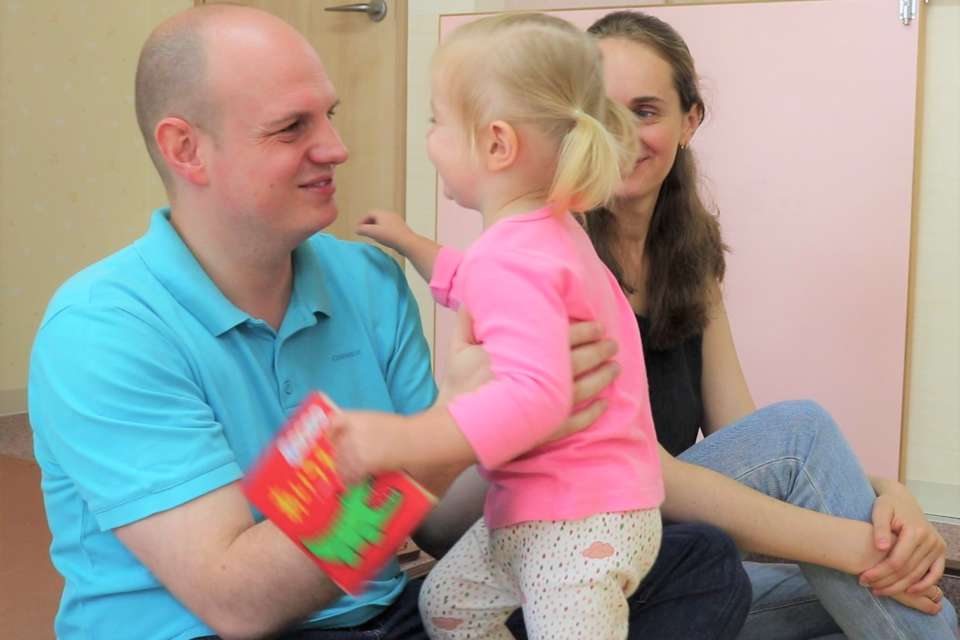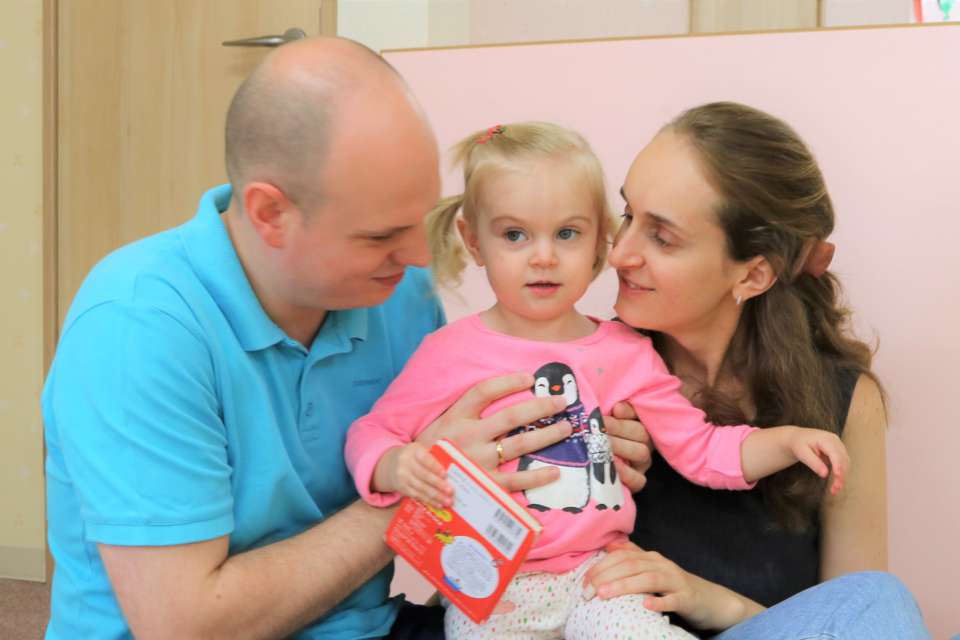こんにちは!
キューティーインタビュー 第二弾です
前回に引き続き、保護者の方にお話しを伺いたいな…と思い、あるご両親へインタビューをお願いしたところ快く引き受けてくださいました。ありがとうございます。
ご両親はヨーロッパから日本にいらしていて、パパのクリスチャンさんはドイツのご出身、ママのアナスタシアさんはロシアのご出身です。とっても可愛い娘さんはソフィーちゃん(2歳)です。
園の先生に聞いたところ、クリスチャンさんとアナスタシアさんはとっても仲のよいご夫婦だとのこと。当日お話を聞かせて頂いている時もとってもそれを感じましたし、何よりソフィーちゃんにすごく向き合って子育てをされているな、と感じました。私のつたない英語にもとても丁寧に答えてくださり、とても優しいご両親でした。
ソフィーちゃんはとっても器用で頭のいいお子さんで、すでにドイツ語とロシア語と日本語を喋りはじめているそう…!トリリンガル。うらやましい限りです…笑
天真爛漫で私にもかわいい笑顔をたくさん見せてくれました^^
This is the second edition of Cutie interview. As I wanted to interview some parents again, I offered the chance to these parents and they were so willing to accept. I really appreciate that.
They are from Europe and their daughter is in our nursery school. The father, Christian, is from Germany and mother, Anastasia, is from Russia. Their lovely daughter is Sophie. According to the teacher, Christian and Anastasia get along well and they care deeply for Sophie. I felt that during interview too and they raise Sophie so diligently. They were so kind that they answered each question politely in spite of my poor English.
It seems that Sophie is so good with her hands and a clever girl. Surprisingly, she has started to speak German, Russian and Japanese also! Trilingal…I’m jealous, haha. Anyway, she is such a cheerful girl that she showed me many lovely smiles.
東京オリンピックが来年に迫っている中で、沢山の外国の方たちが日本に来ていますよね。少し前はアジアの方が多かった印象ですが、最近は欧米の方もとても増えましたよね。
昔に比べれば大分整備されてきたものの、まだまだ日本は海外からの移住者や観光客に優しい国とは言えません。そ
んな国での育児、且つインターナショナルスクールという選択肢もある中、ご夫妻は愛娘のソフィーちゃんをキューティーに預けてくださりました。
どうして日本の保育園を選んだのか、また母国と日本での育児に対する文化の違いなどを聞いてきました。
海外から日本に来ている方で日本の保育園を選ぶかどうか悩んでいる人にも届いてほしいな、と考えています。
Since the Tokyo Olympics are coming soon, many foreigners are visiting to Japan as you know. On the other hand, still, we can’t say that Japan is completely friendly for foreigners. In addition, even though they had a choice to select an international day-care, they chose our nursery school. I asked them why they chose our school, how their own countries and Japan are different when it comes to the way of raising a child and so on.
I hope this article will reach the people who are hesitating about whether to choose a Japanese hoikuen or not.


